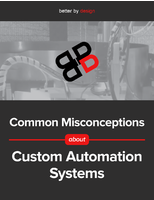Workshop addressed sustainable product standards, criteria.
Press Release Summary:
Organized by ANSI with support of EPA, "Toward Product Standards for Sustainability" workshop brought experts and advocates together to share insights and develop recommendations on product standards for sustainability. Three focused panels addressed challenges involved in successful sustainable performance criteria development, reliance upon standards/criteria to respond to consumer demand for environmentally responsible products, and retail perspectives.
Original Press Release:
ANSI Workshop Addresses Standards and Criteria for Sustainable Products
Today's consumer is shopping with sustainability in mind, placing ever-increasing value on the environmental and societal aspects of product manufacture, distribution, use, and disposal. But with the concepts of "green" and "socially responsible" subject to varied interpretations in the marketplace, government, consumers, industry, and others are looking to product standards and criteria to help establish uniform technical requirements, methods, processes, and practices that address sustainability.
A workshop organized by the American National Standards Institute (ANSI) with the support of the U.S. Environmental Protection Agency (EPA), Toward Product Standards for Sustainability brought together a broad range of experts and advocates to share insights and develop recommendations on product standards for sustainability. The workshop, which took place April 8-9, 2009, in Arlington, VA, was attended by over 240 in-person participants and over 100 more via a live webinar, representing government, industry, standards developing organizations (SDOs), consortia, and consumers.
"Collectively, we face a big challenge," explained ANSI president and CEO S. Joe Bhatia. "There is no 'one size fits all' approach to standard-setting and conformity assessment in the sustainability arena, and there is no one-word answer to whether a product is environmentally friendly. But by collaborating across industry sectors, we can build upon the excellent work that has already been done, identify gaps where new solutions will help, and start building consensus through a partnership between the public and private sectors."
The workshop centered on three focused panels, a keynote address, and breakout sessions for more in-depth discussion among attendees.
The first panel, a facilitated discussion with standards/criteria developing organizations, addressed the challenges involved in the development of successful sustainable performance criteria. Panelists agreed that while there are various approaches to standards development, the single most important component of a successful standard is participation by an inclusive set of stakeholders.
The industry perspective took center stage during the second panel, as representatives from four different companies explained how they rely on standards and criteria to help them respond to consumer demand for environmentally responsible products. Panelists agreed that - at a minimum - product standards for sustainability must be scientifically based and relevant. They should not be so narrowly focused as to stifle innovation, but they should also avoid emotional criteria and remain mindful of economic viability.
Finally, retailers gave their perspectives on product standards for sustainability during the workshop's third panel. Speakers described how their companies are working to market greener products to consumers, and how sustainability standards are being used in conjunction with vendor scorecards or rating systems to compare products.
During the keynote address, participants learned that a "good" standard probably hurts. When improvement remains the chief goal of a standards development process, it can be painful to question long-held perceptions and build consensus, but the quality of the final product justifies the effort.
Attendees divided into breakout groups at the end of the first day to discuss a set of questions on standards for product sustainability. On day two, a summary breakout report was presented to offer some common conclusions and take-away messages:
There are pros and cons to each kind of standards development - proprietary, consensus-based, and government regulation. A consensus-based development process offers many advantages, but there may be a need for a multi-pronged approach, with government regulations to set the floor and voluntary standards to raise the ceiling.
There is a need for an overarching body that will coordinate and guide the process going forward. Both the public and private sectors should have active roles in establishing next steps and examining the current standards landscape on both the U.S. and international levels.
Consistent and globally-accepted nomenclature and terminology - the fundamental building blocks for any burgeoning industry - top the list of stakeholder needs. Until there is consensus, terms like "attribute" and "label" are at risk of being interpreted differently by consumers, standards developers, government, and industry.
Standards should be clearly written so they can be effectively used for reliable certification. The marketplace needs claims that can be substantiated so consumers can reward good performance with their purchasing power and raise the baseline floor.
Some participants noted that single-attribute standards reduce complexity and confusion in messaging, while other participants noted that multi-attribute standards may address environmental risk-shifting or lead to increased consumer confidence.
Labels and communications to consumers about the degree to which a product addresses sustainability concerns need to be uniform and transparent.
These discussions and next steps will be highlighted in a workshop report to be released by ANSI in the coming weeks. In the meantime, presentations given during the event are available at ansiposts.ansi.org. To view the workshop agenda and further details, including speakers, visit www.ansi.org/events and follow the link for "Past ANSI Events and Proceedings."
"In our role as coordinator of the U.S. standardization system, ANSI provides a neutral forum for all stakeholders - private and public sector alike - to come together to address key issues and priorities and to develop solutions," continued Bhatia. "This workshop on product standards for sustainability is just the latest example of ANSI's issue-driven coordination activities. We look forward to continuing to guide this effort on product standards for sustainability."




